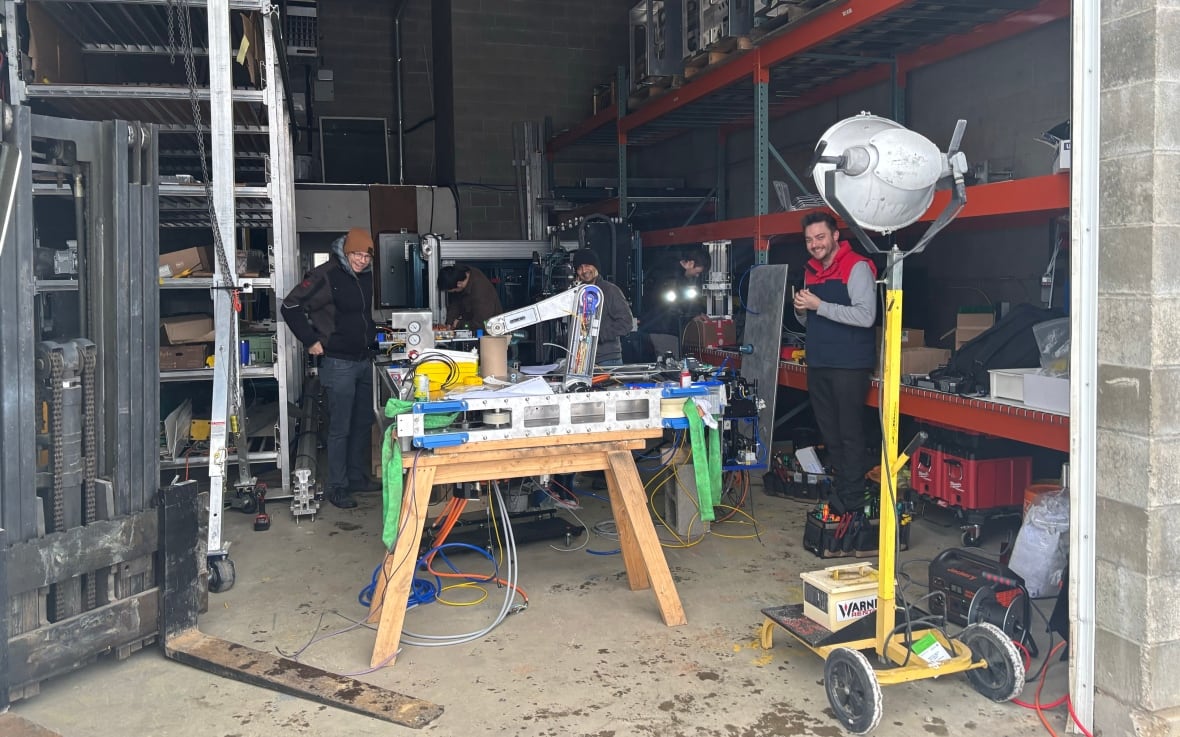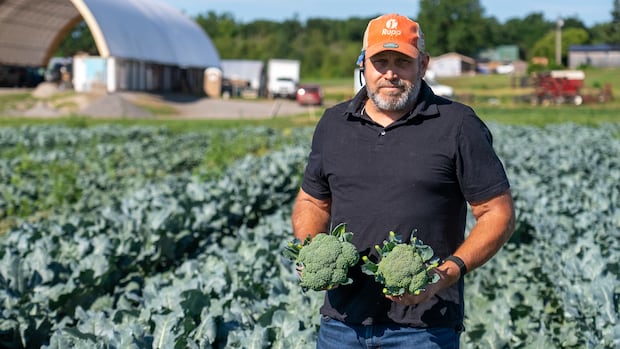B.C. mushroom picking robots get $40M boost to fill growing agricultural labour shortage

A B.C.-based startup that makes artificial intelligence (AI)-run mushroom harvesting robots says a recent $40-million investment will help the company remain at the cutting edge of autonomous agricultural technology, at a time when the industry is facing widespread labour shortages.
4AG (pronounced "forage") Robotics is based in the rural lakeside city of Salmon Arm, between Vancouver and Calgary, on the outskirts of the Rocky Mountains.
There, it creates robots that use AI-run cameras and suction cups to pluck, trim and pack commercially grown button mushrooms.
Sixteen of the autonomous robots are already working for 24-hours a day — without the need for a break — in Canada, the U.S., Ireland, the Netherlands and Australia. With a recent injection of $40 million in capital venture funds, 4AG hopes to increase that number to 100 within the next year.

The innovation is part of a rise in AI agriculture technology around the world. As the food-production industry grapples with a number of challenges including labour shortages, some farmers are to turning to the new tech for help. In Canada, the Canadian Agricultural Human Resource Council says thousands of agricultural jobs remain unfilled every year, and the labour shortage is expected to worsen.
That shortage is especially apparent in mushroom growing, according to 4AG Robotics' chief operations officer Chris Payne. On commercial mushroom farms, people have to work in damp, dark warehouses around the clock to keep up with harvesting the fungi, which grow year-round and can double in size every 24 hours.
"All of agriculture has problems finding people, but that's particularly acute in mushrooms because it's indoors in fairly tough conditions," Payne said.
While 4AG predicts the surging global demand for mushrooms will surpass $70 billion by 2030, the number of people willing to harvest them is not expected to keep pace.
Payne said they hope their robots help fill the gap, while also lowering harvesting costs, which 4AG estimates make up 50 per cent of a mushroom farm's total production costs.
He said while robots may take over labour-intensive harvesting jobs, humans will move into other areas. 4AG is currently hiring more staff to make, program, maintain and sell the machines.

Sean Smukler, the director of the centre for sustainable food systems at the University of B.C., has a front-row seat to technological advancements in agriculture.
"I think there's a lot of exciting developments using AI in agriculture at various scales. I think it's a huge frontier right now and a lot of people are scrambling to figure out how to use it most effectively."
With his team of researchers, Smukler uses artificial intelligence to rapidly analyze soils to predict and address plant nutrient demands and mineral deficiencies across a landscape, as part of a national project.

He said the technological advancements are driven by changes in consumer demand, high food costs, global labour shortages and climate change.
Smukler said AI is being used in many aspects of agriculture, including precision agriculture — where inputs like fertilizer are precisely applied in varying amounts across a farm — and targeted weeding, to reduce the need for herbicides.
"The more efficient we can make our use of inputs, the less loss we have to the environment, but also the more profit the farmer has because of the efficiency of those inputs," he explained.

But while advancements in AI technology may reduce food costs by replacing labourers, and improve sustainable farming practices, Smukler said people ought to be mindful about how and when it is used.
"I would really hate for all of agriculture to become robotic when, in fact, there are a lot of people that enjoy being farmers and the role of farming is a really important one in our society," he said.
"[Artificial intelligence] could make it worse, or it could really be leveraged to enable people to do the job of farming in a way that's much more rewarding and cost effective."
Smukler said it's important to be thoughtful about how AI technology gets developed so that "we're not just letting the technologists drive the choices that are being made."
cbc.ca





